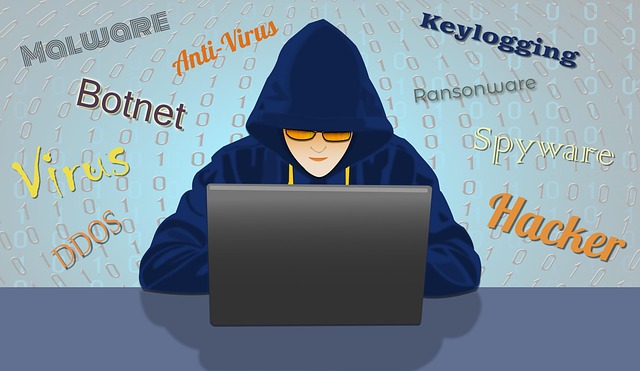In today's digital era, remote user security for CPAs and bookkeepers is crucial. VPNs encrypt data, while cloud login platforms use MFA to protect financial info. Real-time monitoring detects threats, and access control manages permissions. Training, strong passwords, backups, and encryption further safeguard sensitive data exchanged via mobile tools and secure cloud systems, ensuring efficient remote work without compromising confidentiality or professionalism standards.
In today’s digital age, CPAs and bookkeepers increasingly work offsite, demanding robust remote IT support solutions. This article explores tailored strategies for securing remote access while protecting client data, from strong authentication measures and encryption protocols to proactive threat detection and access control. Discover how best practices in training empower a safe offsite work environment, ensuring both efficiency and peace of mind for essential financial services.
- Securing Remote Access: Protecting Client Data
- User Authentication: Strong Security Measures
- Encryption Protocols: Safeguarding Sensitive Information
- Remote Monitoring: Proactive Threat Detection
- Access Control: Managing User Permissions
- Training and Best Practices: Empowering Safe Offsite Work
Securing Remote Access: Protecting Client Data

In today’s digital age, CPAs and bookkeepers often work remotely, requiring secure access to client data and systems. Securing remote user security is paramount to protect sensitive financial information from unauthorized access or breaches. Implementing robust remote file access methods, such as Virtual Private Networks (VPNs), acts as a crucial defense layer. VPNs encrypt data transmitted between the user and the network, ensuring privacy and integrity during remote connections. Regular VPN troubleshooting and updates are essential to maintain this secure environment, addressing any connectivity issues promptly.
Telework tech support plays a vital role in helping professionals navigate these systems safely. By leveraging telework solutions, CPAs can access necessary tools and resources from anywhere, while tech support ensures that the infrastructure remains secure. This approach not only facilitates efficient remote work but also safeguards client data, fostering trust and maintaining the highest standards of professionalism.
User Authentication: Strong Security Measures

In the realm of remote IT support tailored for CPAs and bookkeepers working offsite, user authentication is a cornerstone of robust security measures. With telework tech support becoming increasingly vital, ensuring secure access to sensitive financial data is paramount. Cloud login CPA platforms implement advanced authentication protocols, such as multi-factor authentication (MFA), to safeguard against unauthorized access. These strong security practices not only protect client information but also maintain the integrity and confidentiality of critical business operations, even when staff members are working from a distance.
Offsite tech desks face unique challenges in remote user security, including potential vulnerabilities introduced by diverse network environments. To address this, cloud-based solutions employ sophisticated encryption methods to secure data during transmission and storage. By integrating these advanced security features into their telework tech support offerings, offsite tech desks can ensure that their clients’ financial data remains protected even as they leverage the flexibility of remote work arrangements.
Encryption Protocols: Safeguarding Sensitive Information

In the realm of remote IT support for CPAs and bookkeepers, ensuring secure data transmission is paramount. Encryption protocols play a crucial role in safeguarding sensitive financial information exchanged through various CPA mobile work tools and cloud login platforms. By implementing robust encryption, offsite tech desks can protect critical data from unauthorized access, even when working remotely.
Advanced encryption technologies ensure that data remains confidential during transit and at rest. This is essential for maintaining the integrity of financial records, as remote user security cannot be compromised. With a dedicated offsite tech desk, CPAs can access secure cloud-based systems, ensuring their work environment is just as protected as it would be in an onsite setting.
Remote Monitoring: Proactive Threat Detection
Remote Monitoring plays a pivotal role in ensuring the security of CPAs and bookkeepers working offsite. With advanced tools, an offsite tech desk can proactively monitor network activity to detect potential threats before they cause significant damage. By continuously watching for anomalies in real-time, this approach allows for swift responses to cybersecurity incidents. For instance, unauthorized access attempts or malicious software activities can be quickly identified and isolated through remote audit access, ensuring that sensitive financial data remains secure.
In addition, cloud login capabilities enable efficient management of user permissions and activity logs. This feature facilitates the tracking of who accesses what and when, enhancing transparency and accountability. Such proactive measures not only safeguard against cyberattacks but also foster a culture of security awareness among remote teams. This is particularly crucial for CPAs and bookkeepers who deal with confidential client information, making remote user security an indispensable consideration for effective offsite operations.
Access Control: Managing User Permissions

In the realm of remote IT support for CPAs and bookkeepers, access control is a cornerstone of secure remote user security. Managing user permissions ensures that only authorized personnel can access sensitive financial data and systems, mitigating risks associated with remote work environments. By implementing robust access control measures, such as multi-factor authentication (MFA) and role-based access controls (RBAC), businesses can restrict remote user onboarding processes to specific individuals who need critical information, enhancing security without compromising productivity.
Remote file access for CPAs must be carefully curated during the remote user onboarding process. This involves configuring permissions to ensure that employees have access only to the files relevant to their roles, preventing unauthorized data breaches or accidental leaks. Balancing the need for accessibility with strict control over remote audit access is essential for maintaining the integrity of financial records and ensuring compliance with industry regulations.
Training and Best Practices: Empowering Safe Offsite Work

For CPAs and bookkeepers working offsite, ensuring remote user security is paramount. Training plays a pivotal role in empowering employees to navigate virtual networks safely while using CPA mobile work tools. Organizations should implement best practices such as multi-factor authentication, regular software updates, and strong password policies to safeguard sensitive financial data stored on offsite tech desks. Educating users about potential cyber threats like phishing attempts and malware attacks is crucial for maintaining a secure environment.
Best practices also include enabling encryption for all communications and data transfers, using virtual private networks (VPNs) for secure remote access, and regularly backing up critical information. By adhering to these guidelines, CPAs and bookkeepers can leverage the benefits of offsite work while minimizing risks associated with remote user security.
